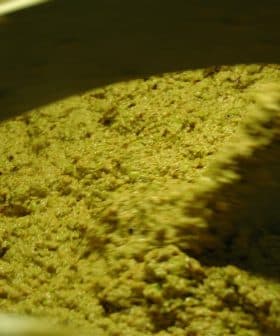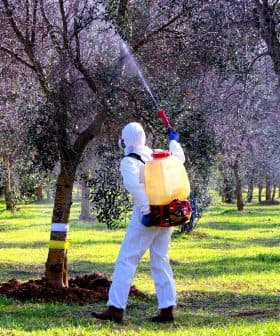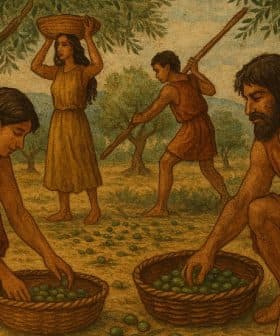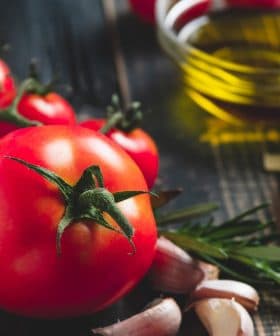USDA Researchers Develop New Tests for Olive Oil Adulteration
USDA scientists developed new analytical methods to test olive oil authenticity and identified potential uses for olive byproducts, including a procedure using PCR technology to detect undisclosed oils mixed with olive oil and a method using ESI-MS technology to examine triglycerides in olive oil samples. Additionally, research suggested that olive powder could be effective in suppressing E. coli bacteria and potentially carcinogenic amines in ground beef, making burgers safer to eat in the future.

USDA food technologist Carl Olsen and agricultural engineer Rebecca Milczarek
Scientists from the Agricultural Research Service (ARS) have turned their attention to olive research and in the process developed two new analytical methods to test olive oil authenticity and identified potential uses for olive byproducts.
New Analytical Tests
As reported in the May/June 2013 issue of Agricultural Research magazine, ARS researchers in Albany, California developed a procedure that uses PCR (polymerase chain reaction) technology to detect undisclosed oils mixed with olive oil. The technology, created by chemist Talwinder Kahlon and co-investigators, distinguishes the DNA of several genes found in olive oil from the genes in other vegetable oils. The test can be done in several hours with equipment at DNA labs.
Selina Wang, research director at the UC Davis Olive Center commented that the method looks promising. Bioinformatics technology has improved much in recent years and “the area of DNA sequencing is exploding,” said Wang.
Another analytical test, developed by ARS researcher Jiann-Tsyh Lin, used a new tool to examine triglycerides (three fatty acids) in determining if olive oil samples contained oils from other plants. Although analyzing fatty acids is not new, the use of ESI-MS (electrospray ionization mass spectrometry) technology is new and should make the process simpler, as noted in the Agricultural Research article.
Milling Byproducts
After extracting a gallon of olive oil in the milling process, 38 pounds of skin, pulp and pits are left over, according to ARS engineer Rebecca Milczarek. Mill operators often pay to ship the byproduct, called “pomace,” to other sites for drying and selling as an ingredient in cattle feed.
Milczarek researched better methods for handling the pomace. She developed a combination microwave and convection method that millers could use on site to partially dry the pomace before shipping it off. The dried material would weigh less and thus would cost less to ship.
Milczarek suggested that the dried pomace be sent to a central location for further development as a possible ingredient in cosmetics or pharmaceuticals.
Better Food Safety
Burgers could be safer to eat in the future because of olives. Chemist Mendel Friedman experimented with adding olive powder to ground beef before cooking burgers on the griddle. Olive powder was found effective in suppressing E. coli bacteria and the possibly carcinogenic heterocyclic amines that arise in the cooking process.
Previous studies showed that olive extracts could kill pathogens, but Friedman’s study demonstrated that olive powder could reduce the bacteria and two amines at the same time. Friedman noted that further studies are needed to see if the powder affects food taste.









